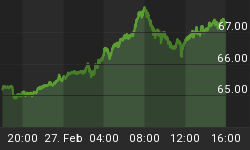It’s said often enough that this is a country of immigrants, and nothing hits that point home harder than a new statistic showing that a whopping $168 billion in American start-ups were founded by immigrants.
They were ambitious and innovative, and looking for the land of opportunity. They found it, and they’ve helped keep America ahead of say … national security threats in the area of technology, like China.
So, when the U.S. Department of Homeland Security on Tuesday proposed cancelling the International Entrepreneur Rule, which allows foreign entrepreneurs to legally stay in the U.S. to build their companies, some of the countries brighter minds balked.
The plan is to kill a bill that came about in the Obama era that would have temporarily allowed some 3,000 foreign-born entrepreneurs into the U.S. to launch high-growth startups. It had never gotten off the ground anyway, originally slated to start in June last year, because Trump has now delayed its launch in a pre-emptive move.
In September last year, the National Venture Capital Association and startup founders sued Homeland Security, and couple months later, a judge ruled that the DHS did not have reasonable cause to delay the start of the visa program for foreign entrepreneurs.
Still, last week, citing an “overly broad interpretation of parole authority,” the department said that rescinding the rule increases protections for U.S. workers and investors.
The move was criticized by many who warned that ending the rule would damage American innovation and job creation, and according to the recent statistic, it seems a valid argument, indeed.
According to the 2016 non-partisan study on entrepreneurship by the National Foundation for American Policy, immigrants have been the catalyst for more than half (44 of 87) of America’s startup companies valued at $1 billion or more. Together, that means immigrants have been behind highly innovative companies that are worth $168 billion in total.
Even more to the point, 43 percent of the businesses that made the Fortune 500 list last year were immigrant-founded, according to a report from Center of American Entrepreneurship advocacy group.
Related: The Indisputable Link Between Gold And Energy Prices
The 216 Fortune 500 companies founded by a first- or second-generation immigrant employ 12 million people worldwide and earned combined revenue of $5.3 trillion last year, the report says. Forty-five of those companies are in the high-tech industry.
Killing the Obama-era entrepreneurship bill itself isn’t going to change that, most likely. After all, US Citizenship and Immigration Services says it had received only 10 applications for the U.S. startup visa last year—in advance. But the Trump’s administration’s attempt to quash immigrant-led innovation in America at a time when it is battling Chinese technological theft and threats to national security could backfire horribly.
Sending a message to potential innovators that give America a leg up won’t do the country any favors. Future unicorn billionaires may just take their brains (and money) elsewhere if this is no longer deemed the land of opportunity, or a land that welcome immigrants.
At the same time, the trend seems to be toward lower numbers of foreign students in the United States, and this is the precursor to the trillion-dollar entrepreneur catalyst. That trend has been exacerbated by recent news that Trump is planning a restriction on student visas for Chinese citizens.
Due the administration sentiment, last year there was a 17-percent drop in international students in the U.S. mostly due to the 28-percent decline in Indian students and a 24-percent decline in Chinese students receiving visas.
In the US, some 1.1 million foreign students contributed $36.9 billion and supported more than 450,000 jobs during the 2016-2017 school year, according to the Association of International Educators (NAFSA).
Unlike United States, Canada and France for instance have special visas intended to encourage foreign entrepreneurs to build companies. In the U.S., entrepreneurs are forced to use existing visas in a rather complicated process that puts too much investment at risk. More recently, counties like Canada, France and even New Zealand have begun actively recruiting foreign students, according to NAFSA.
By Josh Owens for Safehaven.com
More Top Reads From Safehaven.com
















